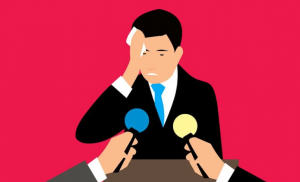If you or someone close to you is having difficulty speaking, it may be time to look into speech therapy. It is an ideal time for you or your loved one to visit a professional speech pathologist who can help you address the issues causing difficulties. Speech therapy is often used when the cause of the speech problem is not a physical disability but a mental one. People of all ages may experience difficulties with communication, and they range from a stammering spoken voice to a full-blown communication disorder such as autism.
 Numerous justifiable reasons can backup why a person may need Speech therapy Adelaide. Some of these reasons could include having a stutter, having a hard time getting others to understand you, being unable to speak fluently, or just having a hard time talking at all. Whatever the reason, you or a loved one must seek treatment for your communication problems. While some people may solve their problems independently, others may require a full-blown speech therapy program to overcome their issues. The primary goal of speech therapy is to help a person overcome the obstacles interfering with their communication.
Numerous justifiable reasons can backup why a person may need Speech therapy Adelaide. Some of these reasons could include having a stutter, having a hard time getting others to understand you, being unable to speak fluently, or just having a hard time talking at all. Whatever the reason, you or a loved one must seek treatment for your communication problems. While some people may solve their problems independently, others may require a full-blown speech therapy program to overcome their issues. The primary goal of speech therapy is to help a person overcome the obstacles interfering with their communication.
It should be noted that Speech therapy Adelaide will not help a person learn how to speak automatically. It will teach a person how to speak more fluently to open up to others more and feel more confident speaking. A speech therapist will teach the individual to improve their speech through a structured process. It includes training the person on speaking in front of others and communicating effectively with those around them. This education will provide the individual with the tools they need to overcome their particular speech problem.
It is not uncommon for a speech therapist to suggest that a person undergo multiple speech therapy sessions. It is very common, especially since not everyone has the same problem. Each person is different, which means that what works for one person will not always work for another. It is why the speech therapist needs to be flexible. The first step in speech therapy is for the individual to identify the problem they have. It will then lead to a more effective and comprehensive plan for treatment.
The speech therapist will begin with primary therapy. It includes helping the individual to build their confidence and knowledge about their problem. The speech therapist will then instruct how to speak more confidently. For example, if the individual stutters when speaking, the speech therapist may ask them to speak slower or hold their head higher. They may also suggest that they practice speaking with a friend or repeated phrases that they can use. The speech therapist needs to be supportive, encouraging, and patient while guiding the patient through speech therapy.
Once they have identified the problem, the speech therapist will help them develop ways to overcome it. One way that this is often done is through exercises. These can include imitating speech sounds or simple exercises such as saying the alphabet or counting from one to twenty.
The speech therapist will teach the individual how to enunciate their words to sound clear to the listener. They will also help the individual to speak slower and longer than average. They should aim to make sure that the individual maintains pace with the speech as well. If the patient cannot hold themselves still long enough to complete a sentence, they should ask for assistance.
When the treatment is complete, the speech therapist will review what was learned and worked. If there are areas that require further work, the speech therapist will inform the individual of their progress. It is important to remember that therapy can only help the individual reach their full potential. If there are other underlying conditions, it is necessary to get those treated first. Speak with your primary care physician if you have questions or concerns.